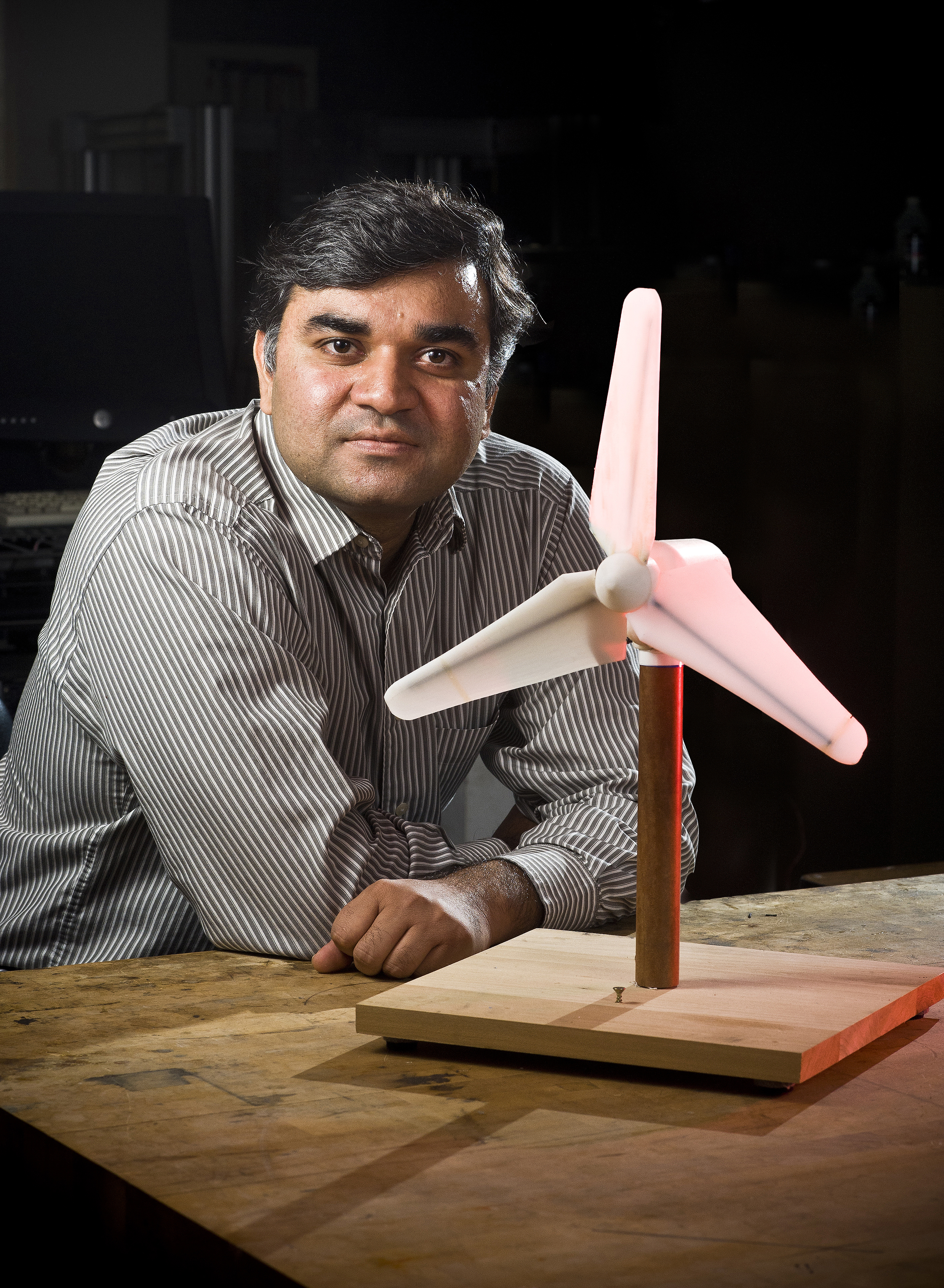Center for Energy Harvesting Materials and Systems to host international conference in Roanoke

An international group of experts on energy harvesting and piezoelectric materials and applications will visit Roanoke from Aug. 7 through 11 for a conference at the Roanoke Hotel hosted by Shashank Priya, associate professor of mechanical engineering and materials science and engineering with Virginia Tech’s College of Engineering.
Leading academic and industrial researchers with the International Workshop on Piezoelectric Materials and Applications will provide in-depth discussion on smart materials, and their applications. The sixth annual Energy Harvesting Workshop brings together researchers from industry and academia to discuss the progress and challenges in the field of energy harvesting. Much of the focus of the workshop is on industry–university collaborative research, with six member nations: China, Germany, Japan, Korea, Turkey and the United States.
The workshop will allow for academics and industrial scientists to open new collaborations on burgeoning energy production projects, said Priya, who also serves as director of Virginia Tech’s Center for Energy Harvesting Materials and Systems, part of the National Science Foundation’s Industry University Collaborative Research Center.
“It’s a unique chance for us to become aware of what industry is working on in relation to energy and see the progress towards product development,” he said, adding that industrial companies also can seek advice on their projects that are facing fundamental challenges on their way to commercialization. Likewise, academics can pitch research projects to industrial companies for funding that might otherwise not come from their home government.
The Center for Energy Harvesting Materials and Systems includes major international companies such as ITT Corp., United Technologies Research Center, Science Applications International Corp., Texas Micropower Inc., Radiant Technologies Inc., Romny Scientific Inc., and OptiXtal Inc., as well as the U.S. Army. Member companies and agencies support the conference with additional funding coming from the independent U.S. agency National Science Foundation.
In conjunction with the International Workshop on Piezoelectric Materials and Applications and the Energy Harvesting Workshop, the first Center for Energy Harvesting Materials and Systems conference also will be held in conjunction in Roanoke. The conference will consist of presentations celebrating the achievements of distinguished scientists.
This year, Kenji Uchino, a professor electrical engineering at Penn State University, will be honored for his outstanding contributions to the field of piezoelectric transformers and ultrasonic motors. This international conference is expected to bring approximately 200 people to Roanoke and Blacksburg, Priya said.
“I always thought about having the meeting at Virginia Tech,” said Priya. “It helps us build a brand and provides the opportunity for researchers from around the world to see our capabilities.”
While the International Workshop on Piezoelectric Materials and Applications will rotate among the six founding countries, the annual Energy Harvesting Workshop and the Center for Energy Harvesting Materials and Systems’ conference would stay in Roanoke every year.
Priya added that bringing such a large group of scientific experts not only could help boost Virginia Tech’s clout, but also helps in spurring economic growth as the experts spend multiple days in the region, staying at the Roanoke Hotel – host of the event – and learn about the city.
The five day conference will be capped with two keynote speakers: Albert Weed II, chairman and co-executive director of the Public Policy Virginia, and Jim Cheng, secretary of commerce and trade for Virginia. Both will touch upon economic opportunities in Virginia. The program is open to the public, with registration funding available for interested high school teachers and students, said Priya.
Piezoelectricity is the study of a broad class of materials that can convert stress into electricity or vice-versa. Although the term and its implications are not commonly discussed in public, most people have seen it in action: Igniters on gas stoves, ultrasonic scanners used to monitor the health of pregnant women, and transformers that are used to light laptop screens. Other applications include mp3 players that can be powered by a joggers’ movement, or a naval vessel that can store up created power from its movement through water, thereby providing power for structural health monitoring.
Priya, spearheading both the International Workshop on Piezoelectric Materials and Applications, Annual Energy Harvesting Workshop, and the inaugural Center for Energy Harvesting Materials and Systems Conference, joined Virginia Tech in 2007. He received his Ph.D. from Penn State University in 2003 in materials engineering, a master’s degree from Indian Institute of Science in 2000, and his bachelor’s degree from Allahabad University in 1995.
Related Links
- Virginia Tech research magazine reports on hate speech, visualizing goals, harvesting energy from vibrations
- Virginia Tech names director of energy initiatives
- National Science Foundation designates the Center for Energy Harvesting Materials and Systems an Industry/University Cooperative Research Center
- Engineering professor wins $100,000 Air Force Young Investigator Award




